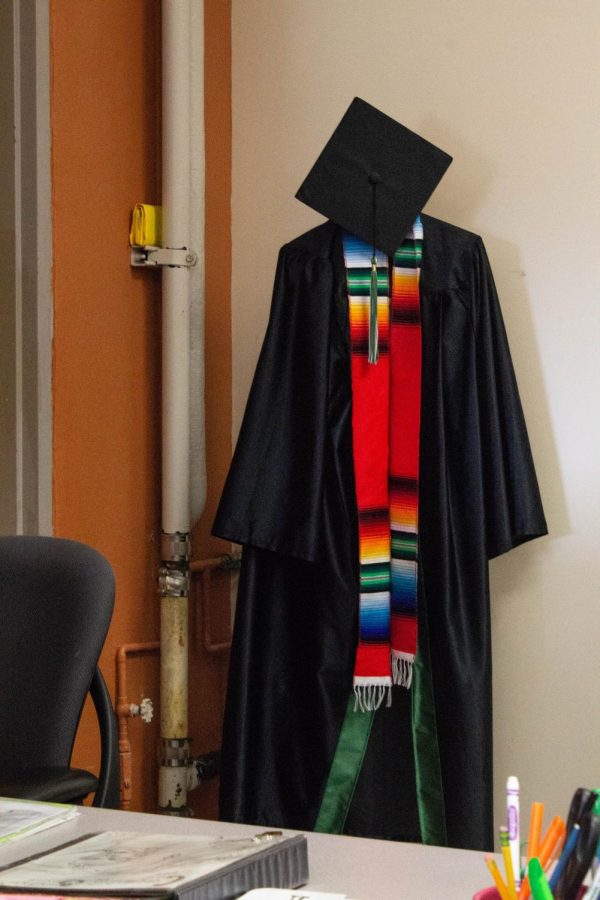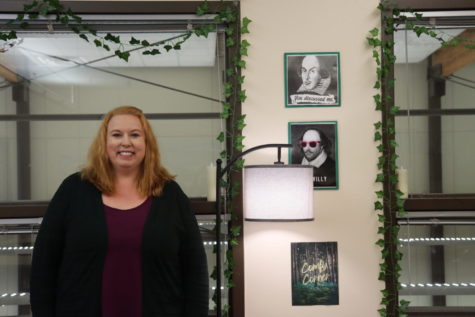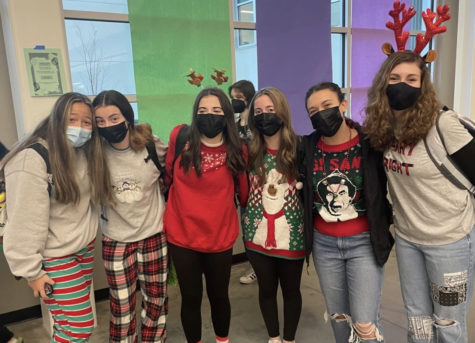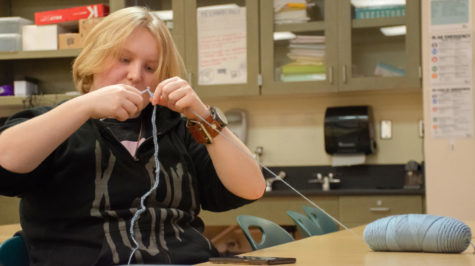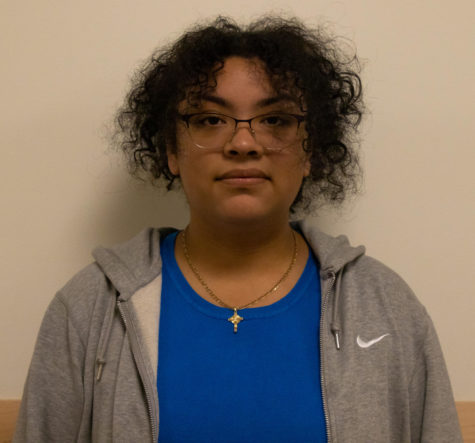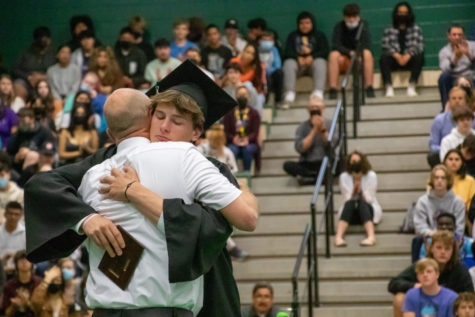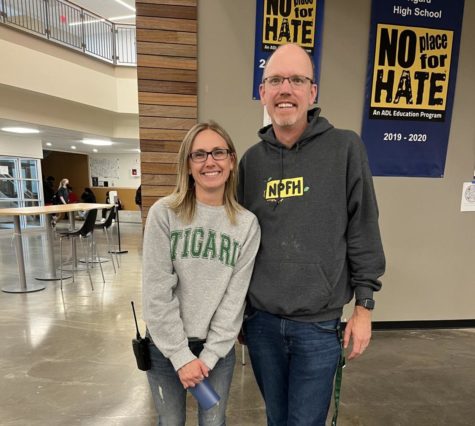A chance to prepare before stepping out into the terrifying, real world that is post-graduation.
When CE2 students graduate early, they get to put on the cap and gown and have their photos taken. They can also return to walk with the rest of the class at graduation.
May 30, 2019
Community Experience for Career Education (CE2) is a vocational program offered by Tigard High and other schools that supports students who are struggling with school. According to the TTSD website, the program has existed since 1972, starting out as just a small project created by the Northwest Regional Educational Library.
Originally, it was established as an alternative solution for students to acquire job skills in addition to completing academic work. Since then, TTSD has adopted this program as an effort to provide juniors and seniors who aren’t on track for graduation the chance to graduate on time with the support of one on one help, and open doors into the workforce.
The selection process isn’t complex, and students can apply. According to CE2 instructor Scott Scribner, students should contact their counselors if they feel as though CE2 would be a good fit and go through an application. Then, if accepted, instructors will go through their transcript and begin lectures. Students will then be given packets to work on that are based off of the credit that they are missing.
The packets are designed to thoroughly cover the curriculum that a student needs. For example in the 9th grade English packet students read and analyze short stories and poetry. Upon completion, students are evaluated based off of their final demonstration of knowledge.
The program also allows students to give back to their community as they explore careers that they may be able to pursue through job internships. Internships involve going to job sites where students have the chance to shadow in areas from manufacturing, to clerical, teaching assistant, and automotive. Students split into two different groups during the class time. One goes out to the job site and the other will stay in the CE2 room. They switch every day so that everyone gets at least one day to do work at school in the CE2 center during the week. They leave school grounds and visit a different location every four to eight weeks to experience different job assignments, tasks and so forth to take in real world experience before graduating. In meeting internship requirements, students earn academic credit.
Senior Zac Vertrees takes CE2. His counselor informed him at the end of 2018, he needed ten more credits in order to graduate. He was sure he wouldn’t be able to complete them on time at the high school, but CE2 was an option to help him achieve his goals.
“[There are] lots of options you can do and the packets we are given are more realistic [the curriculum is more relevant to current times than learning from a book published years ago]. The internships help you get a little taste of it, and you can get a job, and explore,” Vertrees said.
CE2, for the most part, continues to be the place that people go to when they are running out of time and cannot complete their credits as normal high school students. That is the main reason why senior Elahna Winkle decided to join. Later, she discovered that it offered her important skills in addition to help completing credits.
“It helped me with time management because we have a deadline. I learned to have more responsibilities because we have to go to internships and be on time,” Winkle said.
Scribner clarifies that CE2 and alternative schools such as the Durham Center are completely different.
“The Durham Center is more of [a] regular high school, so you go through all periods […] it’s presented differently; you move from class to class. Here in CE2, that’s it. We have one class (they stay in one room) and we don’t move around,” Scribner said.
Although CE2 can speed up the graduation process, it still isn’t an option for everyone. For instance, most of these students are prioritizing getting their high school diploma since they won’t be getting their GED. Many of them know that the chances of them pursuing a college education are unlikely, and that graduation day will possibly be only a one-time experience. They just want to walk down the football field with their cap and gown, feel proud, appreciate what was accomplished, and be able to say that they did it.
“I recommend CE2 to students if they are ready for what CE2 is all about because [it] is not for everyone,” Scribner says.
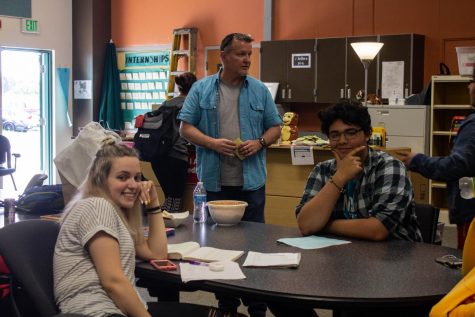
Instructor Scott Scribner helps seniors Elahna Winkle and Jevon Coleman with their packets in the CE2 room. Winkle and Coleman are excited to graduate next week.
A Q&A with CE2 Students
Senior, Leticia Zaragoza
Junior, Shelby Cummins
Senior, Jaden Jones
Why did you join CE2?
Zaragoza: “Around January, I came in because I knew I wasn’t gonna graduate this year, I had talked to my counselor to see if there was another way to graduate.”
Cummins: “I joined because I was focused on a lot of past drama and I wanted to make sure I graduated, to make my dad proud. ”
Jones: “I skipped a lot during freshman and sophomore year. I didn’t think I was gonna make it. I was behind on credits and I wanted to catch up.”
How has CE2 helped you?
Zaragoza: “It helps because there’s exploring careers that I didn’t know about.”
Cummins: “It’s motivated me, and I got a lot of support I didn’t have, now I have options and opportunities.”
Jones: “I started the year needing eight credits and now I only need one.”
What are you proud to have accomplished?
Zaragoza: “Getting where I am today […] because I had many bumps in the road.”
Cummins: “Being able to survive, overcome the drama, and push it away.”
Jones: “Being able to get seven credits in the matter of four months.”
What are your current goals for the future?
Zaragoza: “Right now my goal is to graduate.”
Cummins: “To study law enforcement and get a job in the police department.”
Jones: “To become a helicopter pilot for the army. I’m already enlisted and training, it’s a six month process.”


